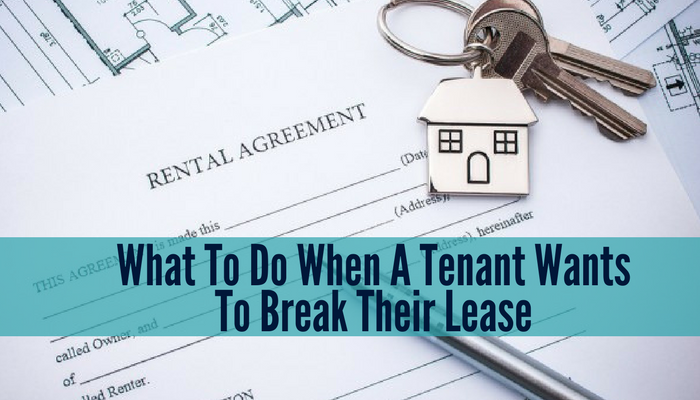There are many legitimate reasons why you may decide not to continue renting to a current tenant. But what if a tenant decides to terminate their lease early or chooses not to renew?
There are a number of circumstances that allow tenants to legally terminate their lease agreement early under federal and provincial law. Similarly, tenants are also not obligated to renew a lease that is expiring, provided certain actions are taken.
Having a tenant terminate their lease early or choose not to renew is not always expected. In fact, it can be a little embarrassing and can cause a lot of headaches.
If you don’t want to deal with the frustrations of tenant turnover, employing a premier, full-service property management company like Marda Management is always a smart decision.
Marda Management helps thousands of investors and owners worldwide manage all aspects of their rental business from tenant turnover and disputes to rent collection and marketing.
If you do choose to weather bumps in the road on your own, there are several steps you can take to help reduce frequent turnover, all while mitigating your risk should a tenant decide to move with, or without, proper notice.
Impacts of an Early Termination or Non-Renewal
Having a tenant break their lease early can certainly have a tangible effect on your bottom line. Not only can there be a loss or rental income, but there are other additional costs to consider. For example, it takes time and money to market the property, set up showings, and screen applicants, all to fill the vacancy.
High tenant turnover can also eat into your profits if you don’t have sufficient reserves, or your liquidity is low. Keep in mind that regardless of if your property is rented or not, you will still have to make your monthly mortgage payment, cover utilities costs, and stay abreast of owed real estate taxes and insurance premiums.
Common Reasons Tenants Terminate Leases Early
Many tenants that choose to terminate their lease early, with or without notice, do so because of a change of circumstances that are often outside of their control.
For example, if a tenant is the victim of domestic violence, most provinces allow tenants to break the lease without any financial implications.1
Another situation might involve military service members receiving orders to deploy for duty.1 Tenants can’t predict when a conflict might occur. While the tenant must provide proper notice to you after receiving orders, they have the right to terminate a lease early without penalty.
Other legitimate and legally permissible reasons to terminate a lease early or not renew a lease for another term include, but are not limited to1:
- Transfers of employment (in some situations)
- The rental unit is non-habitable or safe to live in
- Landlord enters the property unlawfully
However, the majority of situations in which tenants provide cause for breaking a lease early are not actually permissible by law. Usually these involve some sort of deficiency with a tenant’s finances or health.
For instance, the law doesn’t permit tenants to break a lease early if they suffer from job loss, health complications, or legal trouble (including divorce).1 While they should provide you with ample written notice, not all tenants do.
Renters may still try to break their lease early under egregious circumstances, but as the property owner you have the right to mitigate damages if you make an honest (and documented) effort to re-rent the unit.
Nevertheless, litigation can be time intensive, costly, and can cause additional stress on both you and your business. That’s why it’s important to have processes in place to help prevent tenant turnover at all costs.
Keyways to Reducing Your Tenant Turnover
As a real estate investor or property owner, reducing tenant turnover is a crucial component of cost management. While you can’t prevent all cases of either early termination or non-renewal, you can certainly reduce your risk of having an incident occur with these key strategies.
1. Offer a Seamless Renting Experience
It may seem a bit rudimentary but making it easier for a tenant to pay their rent, make maintenance requests, and communicate with you or other managers, will enhance their overall renting experience.
Tenants that have a positive renting experience are more likely to continue to rent from you versus other property owners who are difficult to work with.
A few ways to make it easier for your tenants is to delegate all requests through a property manager, utilize an all-in-one online portal, or even allow for automatic electronic debits for rent collection.
2. Update Your Tenant Screening Process
If you are constantly having tenants change over, it might be time you start thinking about the way you screen new renters. It’s important to check references and find those that have a reputable rental history before you both commit to a lease agreement.
Implementing a credit check on prospective tenants is also a good policy to have. The law permits landlords to inquire about a prospective renter’s repayment capability and credit.2
3. Keep in Touch with Tenants
Whether it’s to communicate policy changes or to inform them of happenings around the neighborhood, it’s important you stay connected with your tenants for many reasons.
The first reason is that you want to build rapport with your tenant so that they feel comfortable coming to you should an unforeseen circumstance arise. That way you can get ahead of issues before they begin to fester.
It’s also important to remain flexible. For example, consider allowing tenants to assign their lease over to another person.3 You could also allow them to sublet their unit for shorter expected vacancies.3
Another reason is that you want to be able to document that you have been in contact with those who might claim in court you have been neglectful of their needs or requests (especially if they claim the property is unsafe).
Lastly, you want to show that you address issues promptly. While not every issue qualifies as an emergency, it’s still important you take the time to respond to tenants via a phone call, email, or even text message. Long waits can impact their trust and confidence.
If you find you don’t have the time in your day to respond to tenant inquiries, track down rent payments, or communicate a new building rule, Marda Management is here to help!
Sources
1 LegalShield Canada. (n.d.). Received a Lease Termination Letter From Tenant? Retrieved March 4, 2022, from https://www.legalshield.ca/landlords/terminating-leases/
2 Jewell, C. (2021, November 1). Can Your Landlord Ask You for a Background Check? Triton Canada. Retrieved March 4, 2022, from https://www.tritoncanada.ca/can-your-landlord-ask-you-for-a-background-check/#:%7E:text=According%20to%20the%20Human%20Rights,cannot%20use%20this%20against%20you.
3 Landlord and Tenant Board. (2019, January). Brochure: A Guide to the Residential Tenancies Act. Tribunals Ontario. https://tribunalsontario.ca/documents/ltb/Brochures/Guide%20to%20RTA%20(English).html





